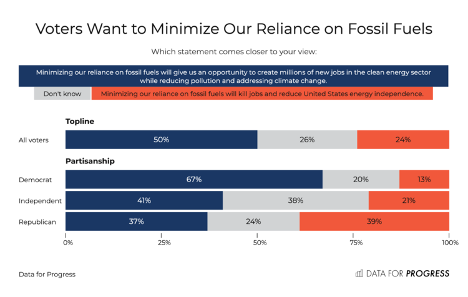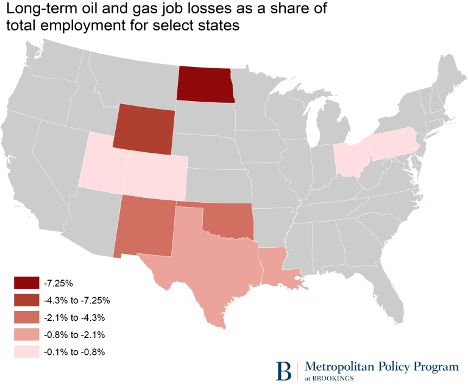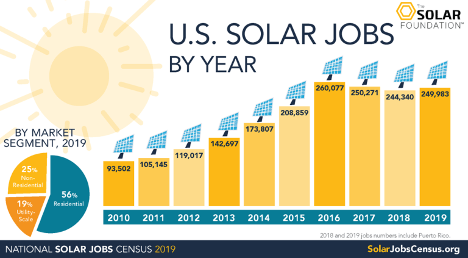Croix Ellison | ecoWURD oped
Severe and deadly winter weather in the most unlikeliest of places, Texas, is creating a new front in the political war over when America finally makes the pivot to clean energy. As millions of Texans find themselves in the dark and freeze from power outages, a debate is flaring up over who’s to blame: Is it really, as the state’s Republican Gov. Greg Abbott and other Republicans across the nation say, a result of a broken renewable energy grid and a “Green New Deal” … that was never enacted? Or, is it really really the result of an underperforming and non-winterized natural gas system that’s the dominant source of power in the state?
These questions have sparked a debate that threatens to hold the rest of the nation back from making an essential decision to save itself … and the rest of the planet.
But, first, facts. NBC News reports …
About 56 percent of Texas’ energy comes from natural gas, just under 24 percent comes from wind, 19 percent from coal, and almost 9 percent from nuclear energy.
“About a third of our thermal fleet is offline,” said Joshua Rhodes, a research associate at the University of Texas in Austin who specializes in the power grid. “We typically count on about 90 percent of it being available during a peak event.”
“From freezing gas wells and gas lines, to depressurization of our natural gas infrastructure because so many homes and businesses are calling for gas at the same time, we just don’t have enough fuel,” he said.
That has not stopped many Republican politicians from pointing to the crisis as a reason to oppose broader climate efforts.
Fossil fuels – the old way of running societies – still account for 80 percent of the United State’s total energy demand. However, because of the threat that climate change poses to our planet, there’s clearly a need to change that … and fast. The U.S. will then need to switch to an economy that runs completely on clean, non-polluting, energy. Our lives, literally, depend on it.
But, despite the urgency of the threat from climate change, there are these big questions that keep coming up: How exactly do we get there?
Despite the fact more than 77 percent of Americans say it’s important for the United States to transition to renewable energy sources, there is still a considerable amount of hesitation from policymakers and voters on transitioning from fossil fuels to clean or renewable energy. This is mainly because the politically-driven narrative – crafted predominantly by Republican Party operatives, elected officials and their supporting network of conservatives – paints a misleading picture that switching into a clean energy economy will not only hurt American workers, but also wreck the economy. This is already a key talking point from the Republican National Committee in an attempt to lure Black voters away from the Biden administration: “Millions more energy sector jobs are threatened by Biden’s radical climate agenda,” says a recent press release from the RNC’s Black Media Affairs office. “[I]ncluding nearly a million jobs that will be eliminated if Biden succeeds in implementing his proposed ban on new oil and gas leasing on federal land.”
That argument has been successful enough to make many Americans, particularly Republican and Independent voters, unreasonably hesitant about immediately and quickly switching to clean energy. A September 2020 Data For Progress poll shows half of all voters were convinced that going to clean energy will create millions of new jobs, but yet half either “don’t know” or are convinced clean energy transition will “kill jobs” – even as the planet undergoes dangerous climatic changes caused by fossil fuel pollution.

However, with a new administration, it seems as if one of the nation’s top priorities will be combating climate change and toxic pollutants. In fact, in a signal of how serious he is about that, at the very start of his administration President Biden canceled plans for the installation of the controversial Keystone XL pipeline, a project that would have transported carbon-heavy oil from Canada to the Gulf Coast. He has also announced that the United States will rejoin the Paris Climate Accord.
As this occurred, some policymakers in Congress announced their plan to undermine the president’s ambitious clean energy agenda. For example, Senator Steve Daines (R-MT) and a group of five other Republican senators submitted a resolution that would require the president to seek approval and advice from the Senate before rejoining the Paris Agreement. Senator Daines also stated that he intended to introduce a separate bill that would have Congressionally authorized the Keystone pipeline, thereby neutralizing President Biden’s plans. “Rejoining this [Paris] agreement places our country at a competitive disadvantage,” Daines’ office argued in a statement. “[It] will lead to higher energy prices for Montana families and job loss in a time when rural economies are devastated, all for minimal benefit.”
Daine’s statement represents a core argument for political opposition to a full clean energy transition. The “clean-energy-destroys-jobs” argument is rather powerful in the short term, even if it is wrong. Still, the transition into a new energy source would actually benefit the economy, not the other way around. Not only are an increasing number of jobs lost when sticking with a predominately fossil fuel economy, but, there is mounting evidence showing a significant number of jobs gained when transitioning into a clean energy economy.
The key in countering the very loaded and sometimes politically effective “pro-jobs” campaign against clean energy transition is to show, clearly, the jobs and economic benefit from full clean energy. First and foremost: Research shows that fossil fuel employment is shrinking, and has been shrinking for years now. For example, from 1980 to 2015, coal mining lost more than 58 percent of its jobs. This is not due to regulation, but mechanization. In 1980, producing 100 tons of coal per hour required 52 miners. As of 2015, this number had dropped to 16 miners, and this is the case even as more coal is being extracted. We’re also seeing that, during the pandemic, the coal mining industry suffers from more losses. Gradual losses have continued to occur in the oil and gas sector, particularly in states heavily reliant on those industries.

In contrast, renewable energy creates more well paid jobs per dollar spent and, as new technologies mature, will continue to do so. Not only is clean energy cheaper, it also provides more jobs – and similar pay – for the same amount of electricity.
By the end of 2019, 3.4 million jobs grew in renewable energy and energy efficiency; this is compared to more than half of that in fossil fuel energy. Prior to the pandemic, clean energy was one of the country’s strongest sectors, adding jobs at a rate of 70 percent faster than the overall economy. As policymakers increase efforts to combat the climate crisis and cut greenhouse gas emissions, jobs in the sector will most likely expand. American solar jobs, according to the Solar Foundation’s Solar Jobs census, have increased 167 percent since 2010

The E2 Clean Jobs America report discovered clean energy jobs outpacing fossil fuel jobs by a margin of 3-to-1. While just over 200,000 employees work in a fast shrinking coal industry, nearly half a million people were working in solar and wind combined by the end of 2019, with clean energy employment growth nearly doubling from 3.6 percent in 2018 to 6 percent in 2019.
Furthermore, a vast majority of traditional energy sector jobs – such as electricians, power plant operators, and oil platform riggers – are needed for both fossil fuel and non-fuel energy industries. Therefore, any further transition for the future of energy technology will not displace workers and will not be as complicated and as disastrous as critics are implying. Additionally, the clean energy sector does not only include jobs in renewable energy, but also in energy efficiency, electrical power and hybrid cars.
A clean economy is essential. However, a main concern is whether fossil fuel workers, and communities that depend on them, will be left behind during this transition. It is clear that, in a transition of the economy, policy makers will need to fully consider fossil fuel workers and their communities. The impact of potential losses to families, businesses, and counties which rely heavily on fossil fuels must be taken into full account during this transition. “We recognized and pushed back against Biden’s emphasis on ‘natural gas as a bridge to clean energy’ during the 2020 election,” said environmental justice activist Tamara Loles O’Laughlin during an on-air conversation on WURD’s Reality Check ecoWURD segment. “So, we pushed him to start calling it a ‘just transition’ to recognize that we can make this as painless a transition as possible for oil and gas sector workers who can help us build clean energy infrastructure.”
Workers in the oil and gas industry from chemical manufacturing and rail shipping need supportive policies and programs as the economy shifts, especially since they have the expertise to build out clean energy infrastructure. This rejects the assumption that transition from fossil fuels to clean energy is unrealistic. That is simply not the case. A majority of energy sector jobs, including electricians, power plant operators, riggers, are needed for both fossil fossil and non-fuel energy industries.
Clean energy, as a result of the pandemic, has experienced some serious losses. However, that level of loss has been happening in every sector, including the fossil fuel industry. Additionally, with the government not generating as much revenue as its spending during the pandemic, we’re not seeing the level of federal investment needed to spur the clean energy sector, just yet.
The transition into a new industry is not easy. However, continuing to use fossil fuels will be destructive to the environment and, ultimately, our ability to live on this planet. There are many logistics that go into a successful clean energy industry, needless to say, but a transition is still prevalent and needed. The world needs a new power source, and renewable energy will be essential in addressing the future of our environment and the security of future generations. Looking at the glass half empty, in this case, is not an option.
CROIX ELLISON is a student at the George Washington University Online High School. She is also an intern for the Council of State Governments Eastern Regional Conference Council on Communities of Color.



